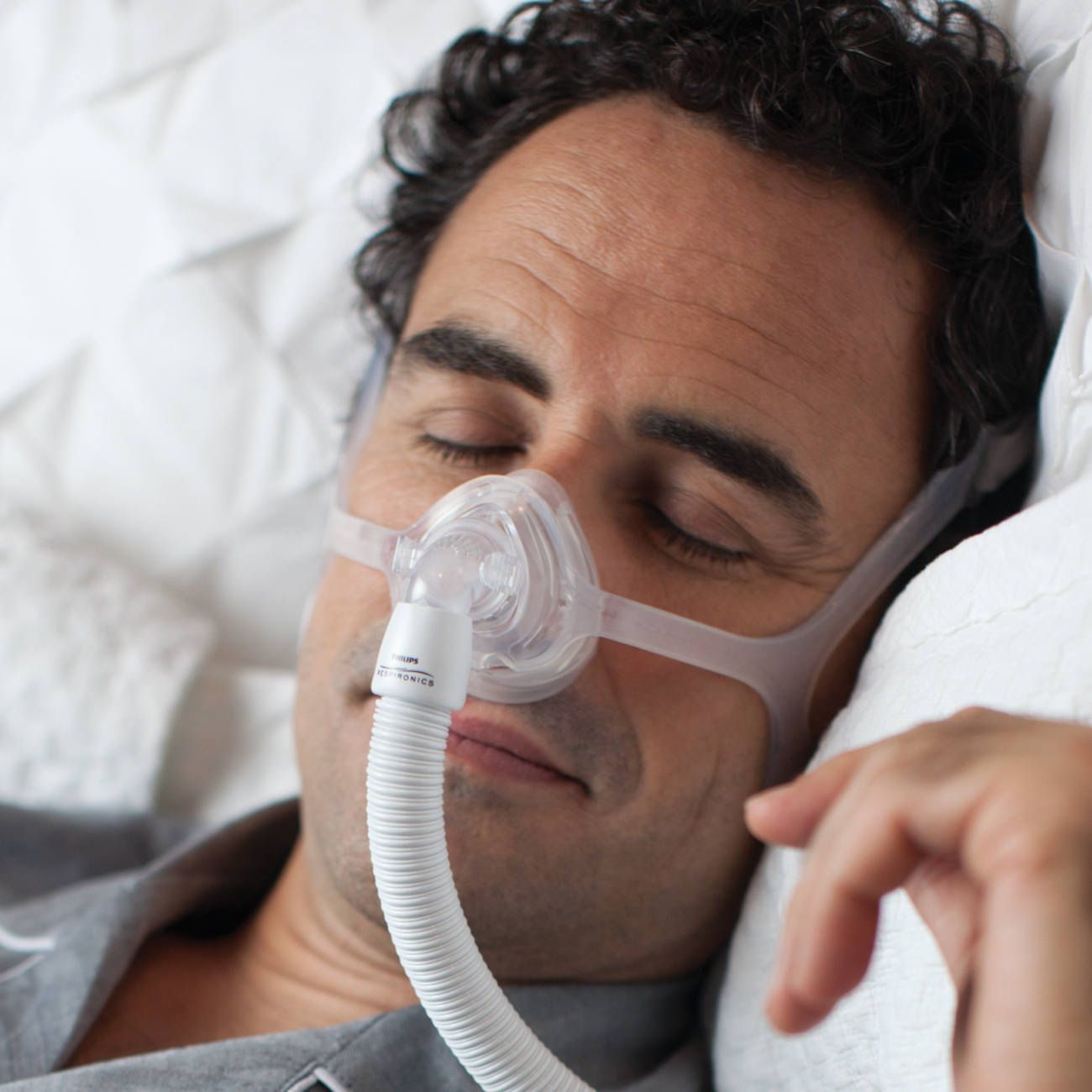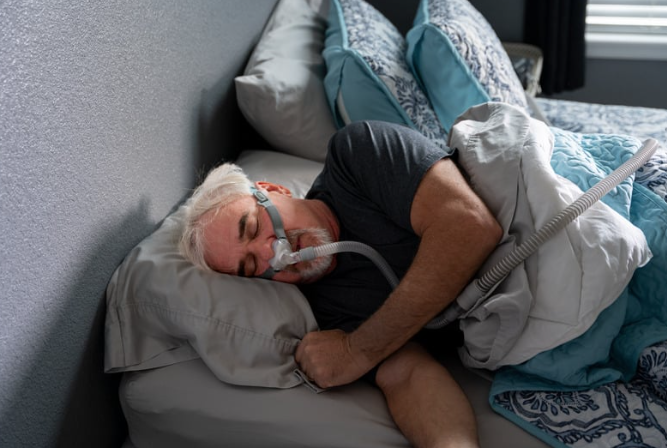Enjoy Restful Nights with Our Equipment

Secure durable medical equipment in Shreveport
Finding the right equipment to improve your sleep can be a game-changer. At The Sleep Clinic, we are contracted with most insurance companies to provide durable medical equipment for patients who suffer from Obstructive and Sleep Apnea. These include CPAP, BIPAP and AutoPAP machines, each tailored to support your unique sleep needs. We also offer the accessories that go along with the machines such as masks, tubing, chin straps and heated humidifiers. Prior to providing the equipment as with the studies we will check your benefits and obtain authorizations and pre-certifications when needed.
We'll do whatever it takes to help you achieve restful sleep. Don't wait to enhance your sleep quality. Visit us today to learn more about our BiPap, AutoPAP and CPAP machines!
Choose the Right Equipment for Better Sleep
The treatment of sleep disorders requires intensive patient as well as family education. This education along with the support we offer to our patients leads to prompt resolution of problems and improved compliance. it is for this purpose that the Durable Medical Equipment program was initiated at the Sleep Clinic in 1995.
We are proud to offer the latest in CPAP/BiPAP technology. Patients are able to select from a wide range of mask or nasal interfaces that result in the best comfort. Although cheaper alternatives exist, the equipment we provide is the best available and from the most reliable manufacturers.
Patients get hands-on practice in our clinic under the supervision of a respiratory therapist to ensure they are comfortable with equipment set-up and use. When patients have any difficulty corrective measures and desensitization protocols are promptly initiated.
In all instances the insurance company is contacted to insure benefits, precertification is obtained if needed and the findings are discussed with the patients.
Investing in durable medical equipment can transform your nights. Each piece of equipment is designed to address specific sleep challenges:
- CPAP Machines for consistent airflow
- BiPAP Machines for varied pressure support
- AutoPAP Machines for automatic pressure adjustments
Looking for BiPAP, AutoPAP or CPAP machines that have customizable settings for personalized comfort? Take action now and improve your sleep with our specialized equipment!

CPAP testing
With the advent of CPAP and BIPAP, overnight recordings have become an intense process requiring intensive intervention. Numerous therapeutic changes must be instituted and then assessed throughout the night. This requires the technologist to be well trained and experienced.
During a CPAP or BiPAP titration the technologist carefully monitors the patient's physiologic parameters and adjusts the pressures accordingly. Normally the pressure is gradually raised until the breathing events subside and normal sleep is maintained. In many instance however, raising the CPAP pressure may result in increased arousals and the technologist should recognize this on the EEG recording and try to correct it before the patient fully wakes up to avoid a more significant disruption of sleep. In such instances backing down on the pressure allows sleep to consolidate and the titration to resume. Additionally patients who develop complex sleep apnea start getting Central Apneas as CPAP pressures are increased and the technologists have to be alert to this physiologic process.
This is especially important in patients with cardiovascular conditions and in seriously ill patients. New technology has to be utilized to ensure optimal treatment. The Sleep Clinic is at the forefront of those important new treatments.
Patients with significant cardiovascular problems and patients with heart failure may have Central Sleep Apnea (CSA). This type of apnea is when the brain fails to send the signals to activate the breathing muscles. In other words the body makes no effort at breathing. This type of apnea is equally dangerous and can be associated with a drop in the oxygen levels in the blood.
The last few years have seen a proliferation of narcotic medication use for chronic pain. While this is essential to provide relief for the pain, there is increased risk for the development of sleep apnea especially CSA. This has always been a frustrating situation to deal with.
Most patients respond well to NPAP treatment including CPAP and BIPAP however, 15-20% of patients with obstructive sleep apnea develop CSA when the treatment is initiated. This condition now called Complex Apnea results in the fragmentation of sleep and poor tolerance to the treatment. CSA appears to represent a major cause for noncompliance with treatment of obstructive sleep apnea.
Our previous treatments for CSA were inadequate but fortunately, a new technology, Adaptive Servo-Ventilation (ASV), is now available and works beautifully. Patients who could not tolerate CPAP or bilevel PAP as a result of CSA and abandoned treatment, may now be helped by this new technology.